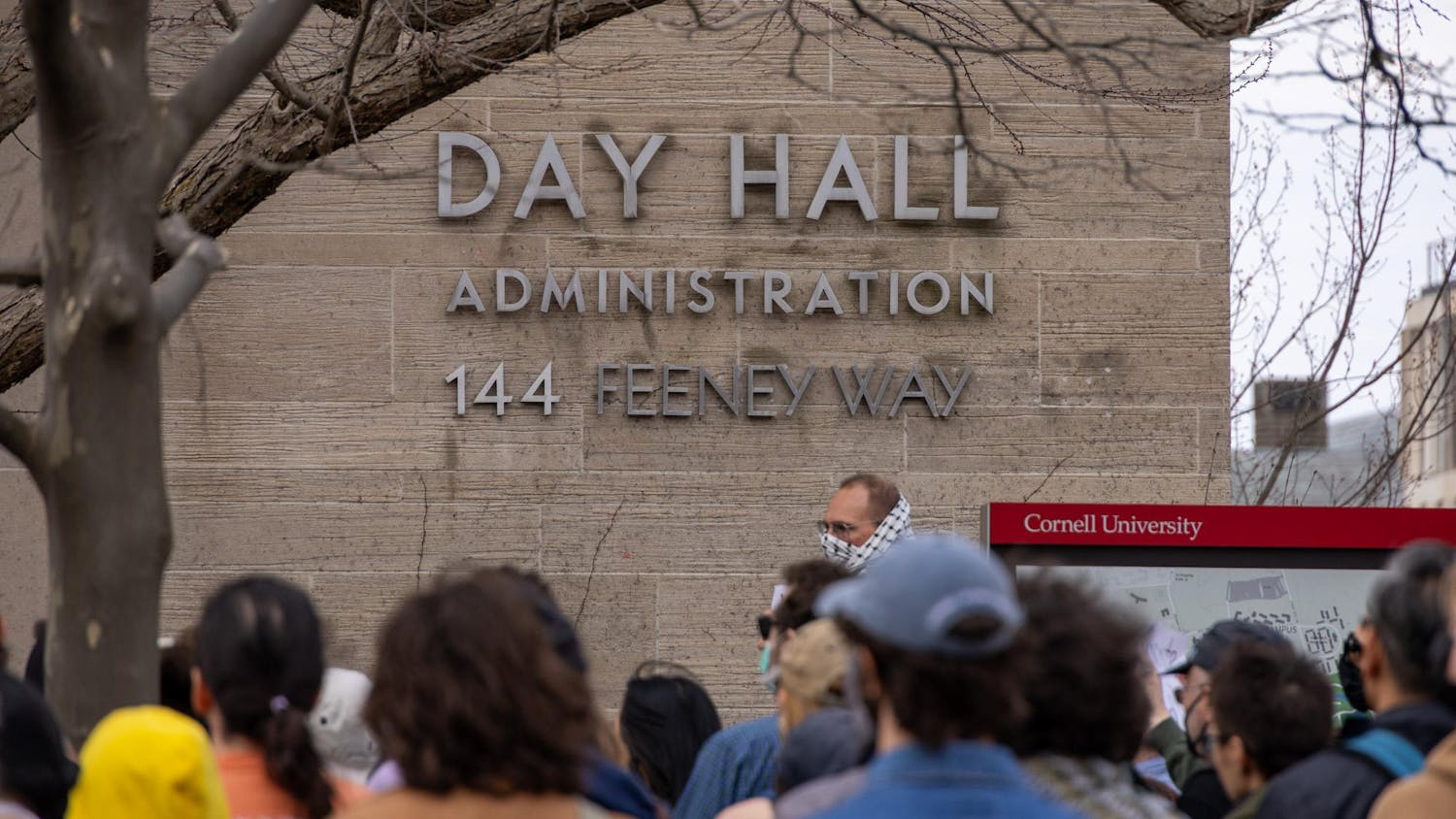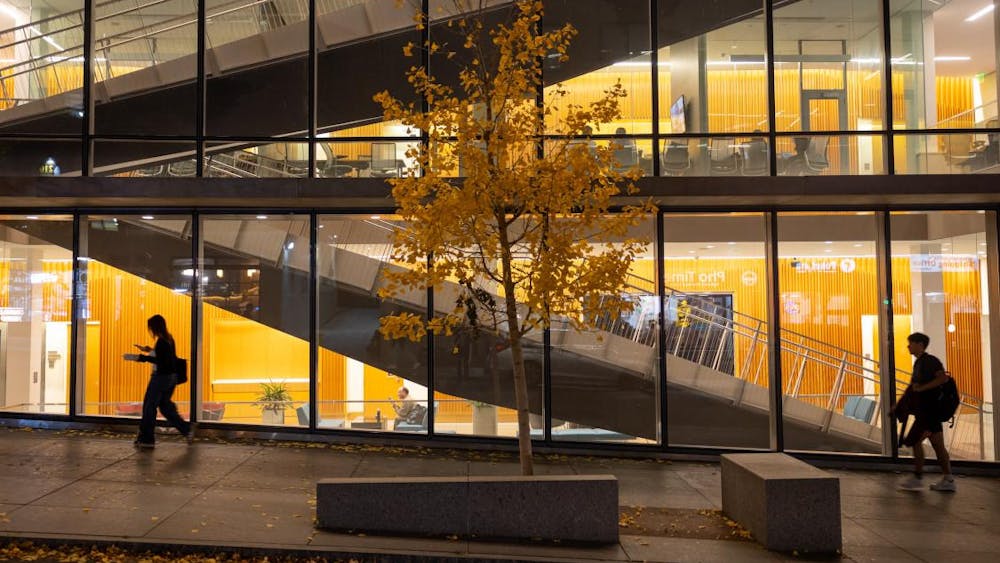The recent Trump administration hiring freeze and funding cuts issued on Jan. 20 have caused significant disruption to internship opportunities for Cornellians, leaving students and faculty scrambling for alternative solutions.
Many students have lost research opportunities inside and outside of Cornell as a result of this federal hiring freeze. Students have not only reconsidered the amount of internships, fellowships and research opportunities available to them, but also which graduate programs to apply to, further impacting their lifelong career paths.
Public policy major Sophia Sim ’28 has faced challenges in securing an official research position due to the uncertainty that the hiring freeze and funding cuts have caused.
“Many students in Cornell’s Brooks School [of Public Policy], myself included, do research for faculty, think tanks, representatives of Congress and consultants,” Sim said. “With President [Donald] Trump cutting funding for research, many jobs and internships are being lost and students at Cornell are feeling the effects as we have less opportunities now.”
Some scientists and researchers at the University are protesting the recent changes made by the Trump administration to federal education funding and policies.
In late February, around 150 people gathered on Cornell’s campus to speak out against new directives from the Trump administration in a “Stand Up for Science” rally where they protested recent cuts to funding related to “indirect costs” — which cover the expenses of research infrastructure — associated with NIH grants towards medical research.
Attendees and speakers at the protest said these orders put their work in jeopardy.
As federal agencies tighten their budgets and slow down recruitment efforts, many students hoping to gain critical hands-on experience in government-related fields are now facing uncertainty about their future prospects.
“Cornell in Washington is a great opportunity to study and intern in [Washington,] D.C., especially for public policy majors, but it is becoming less certain about internships for students in the future which is disappointing,” Sim said.
Other students outside of Brooks are also struggling to find internships and opportunities. Human biology, health and society major Ben Loong ’26 expressed disappointment over the hiring freeze at the Cornell Health Professions Advising Center, which prevented him from interviewing for a peer health position.
Loong recalls feeling “saddened,” especially because part of the role is very focused on mentoring freshmen or people who are coming into college and learning more about what healthcare they’re interested in.
“I valued being able to mentor students and just even talking to people who might be remotely interested in healthcare or medicine,” Loong said, which is what made him “value HPAC so much.”
While the uncertainty surrounding federal internships persists, Cornell’s Student Services emphasizes that there are still valuable opportunities available at the state and city government levels for students to explore.
Julie Bazan, director of career development and enterprising opportunities in the CALS Office of Student Services, wrote to The Sun about what efforts they are taking to keep students informed.
“We are generally letting students know that while the federal government has limited opportunities right now state and city governments are still hiring. So it may be worth looking a bit smaller in size to get an internship of interest,” Bazan wrote in an email to The Sun.
Bazan added that “it is also important to continue to look at options as the [Trump] administration has shifted on many of its policies, so groups that were not hiring may shift to hiring. The job search process should be ongoing and networking with alumni can certainly help.”
Students are encouraged to turn to other resources like LinkedIn or Cornell-specific websites to find opportunities unrelated to the federal government for now.
“Using CUeLinks and LinkedIn to network with alums at agencies you are interested in can help you understand the hiring now and going forward for the next year to two years and can provide you with other alternatives as those in the federal government may have suggestions for areas still hiring,” Bazan wrote to The Sun.
In addition to networking strategies, there are also resources available to support students in gaining valuable experience and building their resumes for future opportunities.
Erica Kryst, executive director of Cornell Career Services, wrote to The Sun that students can utilize the Summer Experience Grant program which “supports students taking low or no cost internships to strengthen their resumes for future careers. We encourage affected students to tap into this resource.”
She added that “as a result of hiring impacts, Cornell Career Services will be sharing some mid-semester outreach to students to encourage them to utilize career coaching appointments for support with their job and internship searches.”
Kryst emphasized that these efforts are part of a comprehensive strategy to ensure students have access to valuable networking opportunities and career guidance, even in the face of challenging hiring conditions.
“We continue to provide opportunities for students to connect with a broad range of industries through employer recruiting events and career fairs. We are also connecting with alumni, employers, and professional associations to stay on top of nationwide trends, and we’re offering opportunities for students to connect with alumni who can share their experiences and offer advice,” Kryst wrote in an email to The Sun.
The Trump administration’s Jan. 20 hiring freeze and funding cuts have caused students and faculty to search for alternative internship opportunities and career resources to help them navigate their professional paths.

Kristie To is a member of the Class of 2028 in the College of Agriculture and Life Sciences. Kristie is a senior writer for the News department and can be reached at kto@cornellsun.com.











